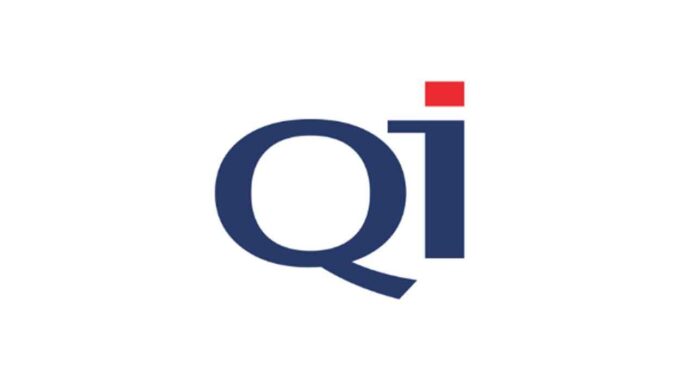There’s a certain mystique surrounding companies that explode from scrappy startups to industry titans. QI Group is a prime example of this phenomenon. Founded in 1998 by Vijay Eswaran and Joseph Bismark, QI Group began as a marketing company with a shoestring budget and a whole lot of ambition.
Today, it stands as a global behemoth, its reach grasping luxury, travel, and consumer goods, among others. But how did this David manage to slay so many Goliaths in such a short time?
Early Days: Innovation on a Shoestring Budget
QI’s initial success hinged on a combination of factors. The first business of QI Group offered a truly innovative proposition at the time: direct selling of products and services, merged with e-commerce, and facilitated by individual entrepreneurs. This innovation not only addressed a specific customer pain point, but did so in a way that was demonstrably more efficient than the existing solutions, clunky and confusing initial iterations of electronic commerce at best. QI Group did this via what would become one of its most successful businesses, QNET.
QNET essentially laid the groundwork for the gig economy, though that terminology was still 15 years or so away when it started. That direct selling business continues today, with millions of customers and thousands of distributors in nearly 100 countries.
Those customers can purchase (and, for distributors, sell) products in the wellness, home and living, health, personal care, beauty, and technology spaces, among others. Again, in the age of Instagram influencers selling whatever they can online, it may sound quaint that this sort of setup wasn’t always around.
Great ideas come and go. Execution and a startup mentality? Those hold. So it’s likely not a surprise that QI Group was incredibly resourceful in the early days. With limited capital, it had to be creative. This often meant long hours, a collaborative spirit, and a willingness to take calculated risks. No different than many other startups. But this one survived — and then succeeded.
Strategic Acquisitions: Building an Empire Brick by Brick
As QI gained traction, it adopted a shrewd mergers and acquisitions strategy. Instead of unthinkingly chasing big names, it targeted smaller companies with complementary expertise or a strong foothold in specific markets. This allowed the company to rapidly expand its product and service portfolio and geographical reach.
In 2006, for example, QI Group purchased Prana Resorts and Spa, a boutique holiday resort in Koh Samui, which at the time was a very underdeveloped island off the coast of Thailand. Now it’s a major tourist attraction — and because QI Group got in early, it reaped the rewards.
Also in 2006, QI Group acquired the luxury Swiss watch brand Cimier, demonstrating a keen eye for quality. The prized timepieces enterprise is currently celebrating 100 years of delivering quality accessories by releasing sought-after limited editions.
“When the QI Group acquired Cimier, now based in Biel/Bienne, Switzerland, in 2006, it facilitated the full cycle of in-house design and assembly of its luxury timepieces, including the collection under the historic brand Bernhard H. Mayer, exclusively distributed by QNET,” states the QI Group website.
The company also acquired Down to Earth, a retail company based in Hawaii that specializes in organic, vegetarian, and other natural products, in 2007. The chain, established in 1977, now has six locations across Oahu and Maui. This investment is indicative of QI Group’s philosophy that profitable business ventures can also be good for humans and the Earth alike.
Cultivating a Culture of Excellence
QI Group’s success isn’t solely attributable to strategic moves and innovative products. The company has fostered a unique culture that prioritizes both employee well-being and a relentless pursuit of excellence. Its website boasts of a “flat hierarchy” and a focus on “empowering employees.” This commitment to a positive work environment is further evidenced by the fact that the company boasts close to a 50-50 gender split both in total employees (53% male, 47% female) and in management (56% male, 44% female), and has employees from 50 different countries.
The company noted that Boston Consulting Group published a report that shows companies with more diverse leadership “reported better innovation and improved financial performance.”
A McKinsey & Company report showed that companies with “greater racial and ethnic diversity have 35% better financial returns than their industry average,” noting that more gender diversity “resulted in a 15% above-average return.”
However, a culture of excellence doesn’t shy away from demanding results. QI is known for attracting and retaining high-caliber talent, constantly pushing them to innovate and improve. This internal drive, coupled with a supportive environment, has undoubtedly fueled the company’s meteoric rise.
QI Group doesn’t solely rely on “the market” to obtain the talent necessary to drive its success. In early 2023, the company made a $650,000 investment in Quest International University to “support the development of innovative tech-based projects that will change the way we do business.”
The two-year project has multiple initiatives, including the Global Events Management System program at QIU.
Education is key, of course, but on-the-job training, as most will attest, is just as valuable.
As such, the enterprise has a variety of delivery methods to coach its people up. There is The Zone, an intense three-day workshop run by Eswaran (invitation only, sorry) to help employees, partners, and distributors find their purpose. There’s also QI Rising, a training program for employees designed to prepare the company’s leaders of tomorrow.
Who Is the CEO of QI Group of Companies?
The founders, Vijay Eswaran and Joseph Bismark, serve as executive chairman and deputy chairman of the board, respectively. The Group’s managing director is Kuna Senathirajah, who also drives the company’s investment strategy.
QI Group’s story can serve as an inspiration for aspiring entrepreneurs. It highlights the importance of a clear vision, a commitment to innovation, and the ability to build a strong team. But perhaps the most valuable lesson lies in QI’s unwavering focus on customer needs. By prioritizing solutions that genuinely improve lives and or businesses, QI has not only secured its own success, but has also carved a niche in a markedly competitive landscape.
As QI ventures into the coming years, many entrepreneurs in the business community will be watching with bated breath, eager to see what this audacious company achieves next and maybe even follow that very path themselves.







